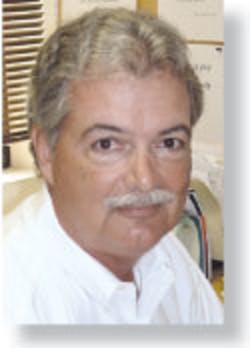His heart needed help pumping blood through his veins. He lost consciousness. Family gathered at his bedside to say their final farewells.
His wife of 56 years, however, did not want to give up, and the doctors tried to encourage her about the possibility of recovery. Today's mentality of trying to live forever, mankind's inner drive to keep living by whatever means, took over. Oxygen was pumped into his lungs. Dialysis was provided. Drugs fed intravenously kept his blood pressure stable.
Through two apparent strokes and two bouts of pneumonia, this man was kept alive by the machines — and of course by the skilled physicians and nurses who administered to him night and day. But it was primarily the machines, as the doctors really couldn't tell the family what was wrong or what the outcome was likely to be.
There was always hope this 84-year-old former U.S. Marine would somehow miraculously recover. He was a tough bird, had a lot still to live for and was receiving the best medical care. Surely, all the money being spent on machines and hospital staff would somehow keep this man from dying. Surely, they would somehow cheat mortality.
Every little improvement in this man's condition was treated as a signal — by the doctors and the wife — that he was improving and would someday be back to his old self. He began to breathe well enough on his own that a tracheotomy was performed, and the breathing tubes removed from his throat. A tube was inserted into his stomach to provide nourishment.
Eventually, this man came around a bit, opening his eyes, saying a few words and recognizing family and friends. There was promise, hope, belief that the machines and the hospital staff were creating a miracle of sorts — one that is attempted hundreds of times daily across the United States.
But no one really knew how well this man's brain was functioning during this fight for life. Did he know what was happening to him? If he could, would he have cried out to cease and desist? Did he want these extraordinary measures to be taken? Was his mind trapped in a body that had run its course? Was the effort to safe his life more a form of torture to a man who could not make his thoughts known?
We'll never know those answers. On the 74th day, the care he was receiving finally failed in its mission. Despite all the machines and all the doctors, all the nurses, all the modern medical-world marvels, all the money, his heart finally said “enough.”
Good-bye, Dad.




